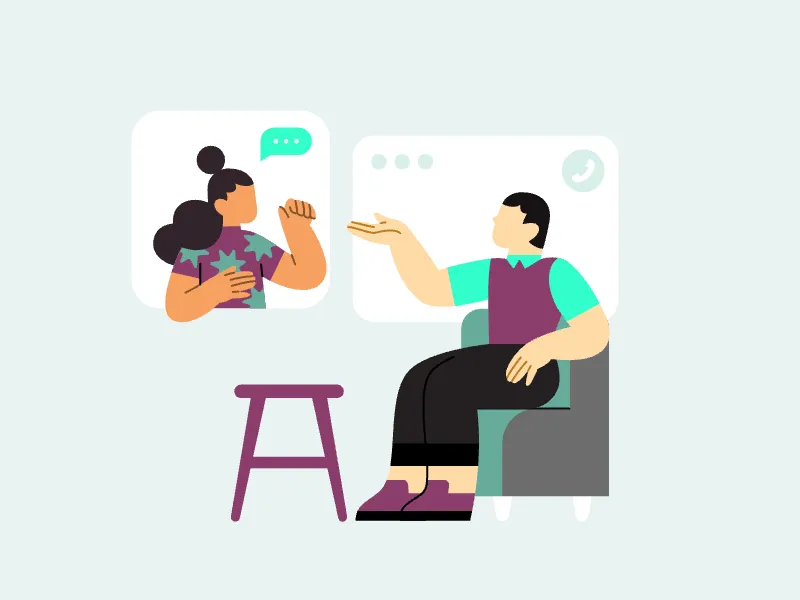Addressing factors influencing the eating disorder
Families play a critical role in addressing the broader environment that may influence the eating disorder. The dynamics within a household—such as patterns of communication, conflict resolution, or emotional expression—can affect the individual’s progress and own well-being.
Family involvement allows these dynamics to be explored and improved, creating a healthier, more nurturing space for recovery. This process helps reduce misunderstandings and builds a stronger foundation for healing, benefiting not just the individual but the entire family system.
Support during difficult times
Support from family members is especially important during difficult stages of recovery, such as establishing regular eating patterns, managing emotions, or facing fears around food. Families who actively participate can encourage and help their loved ones navigate these challenges, reinforcing the positive changes needed for sustained recovery. Their involvement not only offers practical help but also affirms their commitment to the individual’s well-being and mental health, strengthening trust and connection.
{{link-bank-two-column}}
Family involvement and long-term recovery
The long-term success of eating disorder recovery is also closely tied to family involvement. Research has shown that family-based interventions can achieve recovery rates as high as 50-60% at one-year follow-up, with significant improvements in long-term outcomes compared to individual-focused treatments.1
Recovery is rarely straightforward, often involving setbacks and moments of uncertainty. A family that is supporting treatment while it happens can serve as an anchor during these times, offering reassurance and consistency. By maintaining open communication and working together, families can help their loved ones remain on the path to health and resilience.
Alleviating caregiver burden
Involving families in the recovery process helps alleviate caregiver burden, a common challenge for those supporting a loved one with an eating disorder. Participation in treatment provides caregivers with valuable education, practical tools, and emotional support, empowering them to navigate the complexities of caregiving more effectively.
Studies show that families involved in treatment experience a 35% reduction in caregiver stress and report improved family functioning.2 This collaborative approach fosters a sense of teamwork, reduces feelings of isolation, and creates a more supportive environment for recovery, benefiting both the individual in treatment and their loved ones.
You might also be interested in
Family-based treatment is necessary
Eating disorder recovery is not just an individual journey; it is a family effort. When families actively engage in the process, they provide essential emotional support, practical help, and a sense of connection vital for healing. By working together, families can create an environment where recovery is possible and sustainable.
How we integrate family support at Within
No patient comes to our care without family and loved ones, no matter how complex those relationships may be. Failing to address the role of these people in a patient's life is failing to provide the type of comprehensive, whole-person care we pride ourselves on.
At Within, our treatment team recognizes that each family’s history within the context of their loved one’s eating disorder is unique, with their own set of needs and circumstances. We utilize family therapy to uncover familial issues that may need to be addressed to provide our patients with the best possible outcome and to help address unspoken fears and anxiety that all members of the family may experience.
These family therapy sessions all occur virtually through our eating disorder treatment application. No matter where the family members live, they can participate in family therapy sessions conducted by a licensed therapist.
In addition to family therapy, we offer other forms of family support, such as:
- Family education which allows loved ones to learn more about eating disorders and how to talk about them in a way that isn’t stigmatizing or oppressive.
- Family support groups which give loved ones the chance to share their experiences and learn from other family units.
While we always aim to be inclusive, we realize that in certain situations, family involvement may not be helpful for the patient and care team, especially if family dynamics include neglect or emotional, physical, or sexual abuse. In these cases, we may refer family members to another support system that can provide outside support and guidance.
Learn more about family involvement at Within
Every family dynamic is different; ultimately, we strive to do what’s right for each patient. This always involves considering their environment and the quality of their relationships. Communication, understanding, and addressing problems can be part of patient care, leading to more hope for long-term health. Our goal is to make families empowered and feel they can provide the support needed to the individual dealing with the eating disorder.
Get help today 













